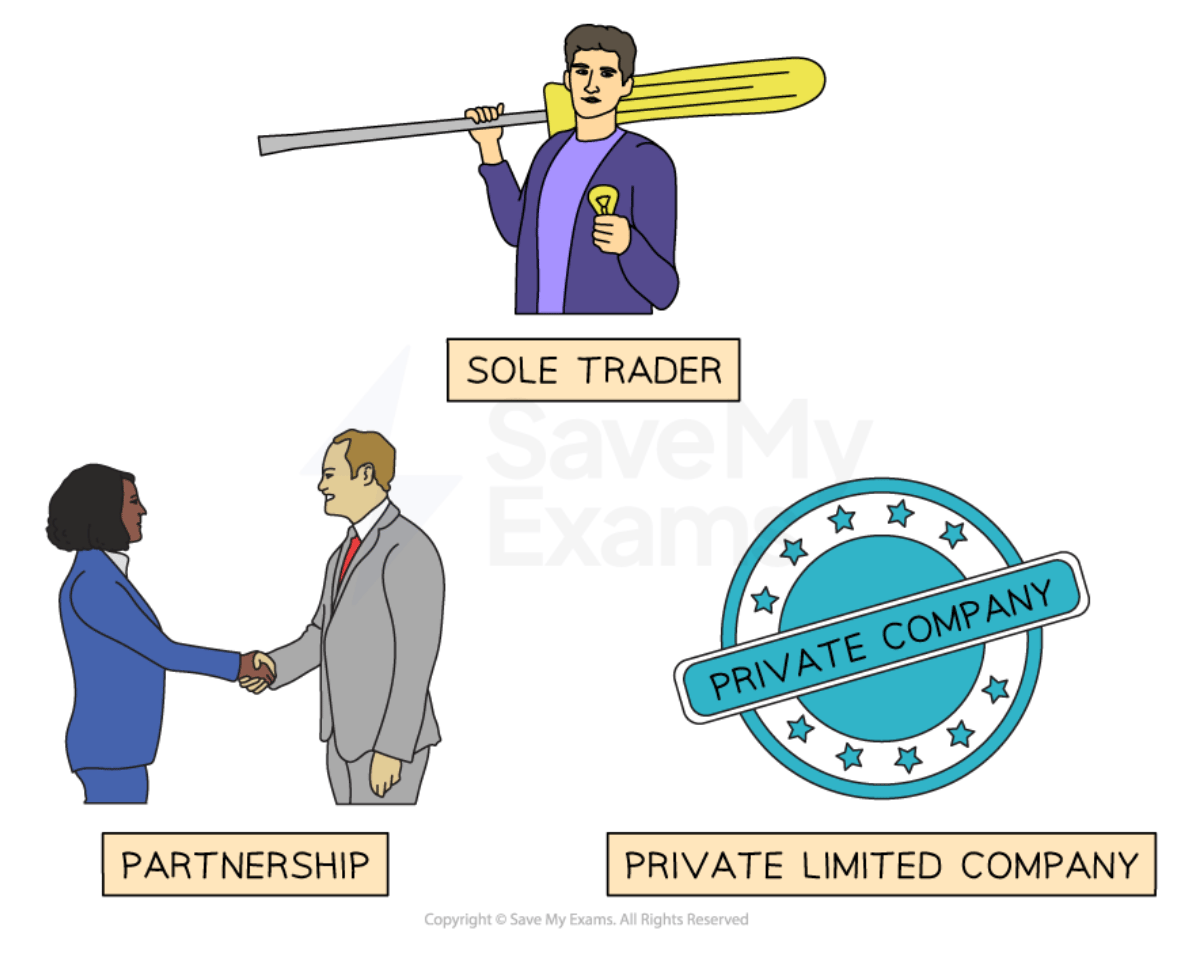Sole Traders & Partnerships (Edexcel IGCSE Business): Revision Note
Exam code: 4BS1
Sole traders
When an entrepreneur starts a business they need to consider what form of ownership they want for their business
The main forms of ownership for start-up businesses are
Sole trader
Partnership
Private limited company (Ltd)
The main forms of ownership for start-up businesses

A sole trader is a business with a single owner who makes all the decisions and gets to keep all of the profit
Operating as a sole trader is the simplest way to start trading immediately
Sole trader businesses are often very small with one owner who runs the business on their own (although they may employ people to work in the business)
They are concentrated in the tertiary sector, offering services such as tutoring, home improvements or taxi driving
However sole traders have unlimited liability which means that they are personally responsible for all business debts
If the business fails any money owed must be paid by the sole trader to avoid bankruptcy
Advantages and disadvantages of setting up as a sole trader
Advantages | Disadvantages |
|---|---|
|
|
Partnerships
A partnership involves two or more people joining together to own a business
They are relatively easy to set up with relatively few legal formalities
Partners may choose to draw up a deed of partnership which states the formal rights of each partner including
The amount of capital contributed by each partner
How profits or losses are shared amongst partners
The procedures for dissolving the partnership and taking on new partners
The level of control each partner has
Examples of business that commonly operate as partnerships include lawyers, accountants and doctors
Advantages and disadvantages of setting up as a partnership
Advantages | Disadvantages |
|---|---|
|
|
Examiner Tips and Tricks
You may be asked to recommend the most appropriate business ownership for a given business enterprise. Consider the level of risk involved, the amount of capital that is needed, the amount of work involved in running the business effectively as well as the personal aims of the business owner(s).

Unlock more, it's free!
Did this page help you?